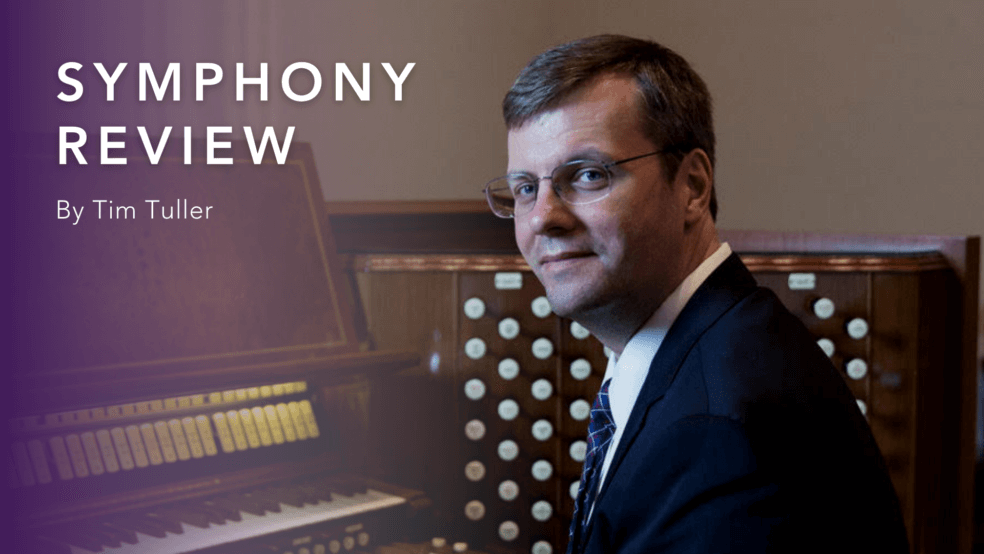Performance Review: Appalachian Spring
The Jacksonville Symphony Orchestra presented “Appalachian Spring” this weekend, a program consisting of three works by American composers directed by Associate Conductor Gonzalo Farias.
Just before beginning the concert Mr. Farias led the orchestra in the Ukrainian national anthem as a sign of support for the Ukrainian people in light of the events currently unfolding there.
“The Block,” by Carlos Simon
First on the program was a short piece entitled ”The Block” by contemporary American composer Carlos Simon. This ebullient and colorful piece was inspired by paintings by Romare Bearden depicting various buildings and daily life scenes along a single block in Harlem. Simon’s piece sets out to evoke these tableaux in sound. The symphony dove into the snappy, incisive rhythms and the audience was clearly engaged by the sparkling, almost cinematic character of this score. Simon’s experience as a composer of film scores clearly showed through in this work. “The Block” was the perfect curtain raiser for the rest of the program.
“Appalachian Spring,” by Aaron Copland
Next came Aaron Copland’s well-loved ballet suite “Appalachian Spring.” Mr. Farias’s tempos and dynamics were well controlled, letting the form of the piece unfold naturally and allowing the phrases room to breathe. The symphony played with commitment and the solo lines were sculpted with imagination and care, keeping the work sounding fresh and vital.
“Symphony No. 1,” by Florence Price
After an intermission, the first that the symphony has had since Covid restrictions were implemented nearly two years ago, we were offered the rarely heard Symphony No. 1 of Florence Price. This symphony was premièred in 1933 by the Chicago Symphony Orchestra giving Price the distinction of being the first African American female composer to have a symphony performed by a major American orchestra. While the overall music language of this work is firmly rooted in nineteenth century Romanticism, Price’s personal voice shines forth in the originality of the orchestration, as well as in her melodic and rhythmic approach.
The first movement kicked off with a restless bassoon melody underneath undulating strings. The piece was characterized by a shimmering variety of orchestral color, particularly in the woodwinds. Solo lines were abundant, and the oboe in particular was featured prominently throughout. The second movement put Price’s originality on full display with a beautiful chorale melody which included bongo drums. The third movement was a fascinating adaptation of an African dance called a juba, and the final movement brought everything together with lively dance rhythms, culminating in a rousing conclusion. Clearly, the name Florence Price deserves to appear on orchestral programs far more often than it has thus far. The audience offered unapologetic applause after each of the four movements, clearly appreciative of having been introduced to this unduly obscure gem.
Innovative and Effective
“Appalachian Spring” proved that the Jacksonville Symphony’s excellence in innovative and effective concert programming continues. The program weaves together these very different composers in a manner that guides the listener in discerning the unified voice of the American musical heritage.
Tim Tuller is the Canon for Music at St. John’s Episcopal Cathedral in Jacksonville, Florida. Tuller formerly wrote for the Florida Times-Union as classical music reviewer.
Watch and Listen
If this type of innovative and effective programming interests you, please visit our 21/22 season page to find upcoming Florida Blue Classical Series performances. Additional content for this performance includes a Q&A with composer Carlos Simon, a Nickel for your Thoughts blog post, and a full set of Program Notes. Purchase tickets for the next Florida Blue Classical Series or watch the live-stream on our YouTube channel.
The Jacksonville Symphony would like to give special thanks to Florida Blue for sponsoring the Classical Series. Additional thanks are given to Tim Tuller for attending the performance and writing this performance review: Appalachian Spring.


